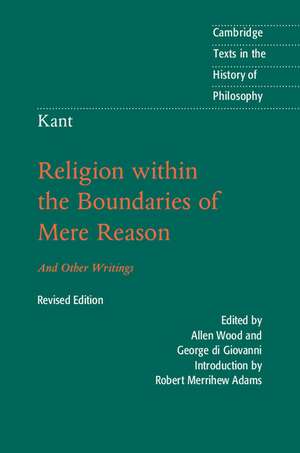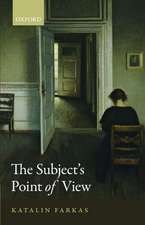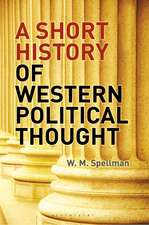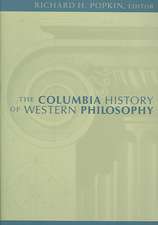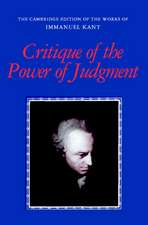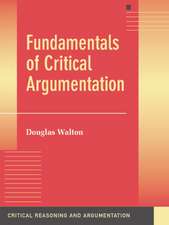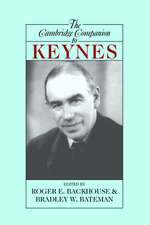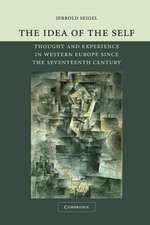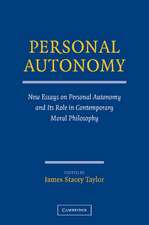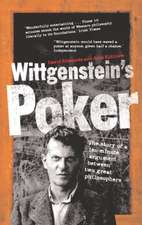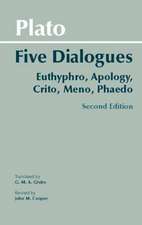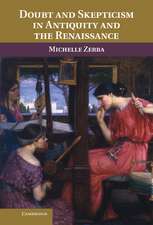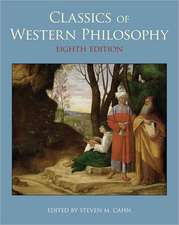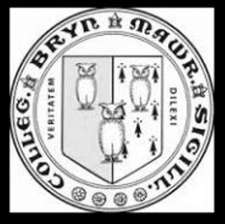Kant: Religion within the Boundaries of Mere Reason: And Other Writings: Cambridge Texts in the History of Philosophy
Autor Immanuel Kant Allen Wood, George di Giovannien Limba Engleză Paperback – 21 feb 2018
| Toate formatele și edițiile | Preț | Express |
|---|---|---|
| Paperback (7) | 64.75 lei 43-57 zile | |
| Hackett Publishing Company – 15 oct 1995 | 113.47 lei 22-36 zile | |
| Cambridge University Press – 24 ian 1991 | 178.53 lei 22-36 zile | +19.18 lei 5-11 zile |
| Cambridge University Press – 21 feb 2018 | 200.18 lei 22-36 zile | +15.69 lei 5-11 zile |
| Cambridge University Press – 3 oct 2017 | 201.24 lei 22-36 zile | +19.52 lei 5-11 zile |
| Cambridge University Press – 30 sep 2015 | 328.11 lei 22-36 zile | |
| A & D Publishing – 15 feb 2008 | 64.75 lei 43-57 zile | |
| Cambridge University Press – 15 sep 2004 | 280.15 lei 43-57 zile | |
| Hardback (6) | 130.97 lei 43-57 zile | |
| Hackett Publishing Company – 15 oct 1995 | 294.69 lei 22-36 zile | |
| A & D Publishing – 3 apr 2018 | 130.97 lei 43-57 zile | |
| Cambridge University Press – 15 sep 2004 | 537.80 lei 43-57 zile | |
| Cambridge University Press – 21 feb 2018 | 538.02 lei 43-57 zile | |
| Cambridge University Press – 11 oct 2017 | 591.76 lei 43-57 zile | |
| Cambridge University Press – 3 oct 2012 | 1036.27 lei 43-57 zile |
Din seria Cambridge Texts in the History of Philosophy
- 11%
 Preț: 674.95 lei
Preț: 674.95 lei -
 Preț: 154.62 lei
Preț: 154.62 lei -
 Preț: 163.93 lei
Preț: 163.93 lei -
 Preț: 240.27 lei
Preț: 240.27 lei -
 Preț: 273.03 lei
Preț: 273.03 lei -
 Preț: 258.76 lei
Preț: 258.76 lei -
 Preț: 124.35 lei
Preț: 124.35 lei -
 Preț: 162.04 lei
Preț: 162.04 lei -
 Preț: 184.53 lei
Preț: 184.53 lei -
 Preț: 115.37 lei
Preț: 115.37 lei -
 Preț: 289.73 lei
Preț: 289.73 lei -
 Preț: 200.67 lei
Preț: 200.67 lei -
 Preț: 188.94 lei
Preț: 188.94 lei -
 Preț: 359.94 lei
Preț: 359.94 lei -
 Preț: 257.55 lei
Preț: 257.55 lei -
 Preț: 192.42 lei
Preț: 192.42 lei - 14%
 Preț: 764.18 lei
Preț: 764.18 lei -
 Preț: 245.94 lei
Preț: 245.94 lei - 14%
 Preț: 819.75 lei
Preț: 819.75 lei -
 Preț: 371.83 lei
Preț: 371.83 lei -
 Preț: 387.64 lei
Preț: 387.64 lei - 11%
 Preț: 572.21 lei
Preț: 572.21 lei -
 Preț: 439.33 lei
Preț: 439.33 lei -
 Preț: 319.32 lei
Preț: 319.32 lei - 14%
 Preț: 765.67 lei
Preț: 765.67 lei -
 Preț: 362.54 lei
Preț: 362.54 lei -
 Preț: 329.92 lei
Preț: 329.92 lei -
 Preț: 444.37 lei
Preț: 444.37 lei -
 Preț: 386.28 lei
Preț: 386.28 lei -
 Preț: 348.65 lei
Preț: 348.65 lei -
 Preț: 350.58 lei
Preț: 350.58 lei -
 Preț: 283.63 lei
Preț: 283.63 lei -
 Preț: 451.88 lei
Preț: 451.88 lei -
 Preț: 193.86 lei
Preț: 193.86 lei
Preț: 200.18 lei
Nou
Puncte Express: 300
Preț estimativ în valută:
38.30€ • 40.10$ • 31.69£
38.30€ • 40.10$ • 31.69£
Carte disponibilă
Livrare economică 17-31 martie
Livrare express 28 februarie-06 martie pentru 25.68 lei
Preluare comenzi: 021 569.72.76
Specificații
ISBN-13: 9781316604021
ISBN-10: 1316604020
Pagini: 294
Dimensiuni: 152 x 228 x 16 mm
Greutate: 0.41 kg
Ediția:2Revizuită
Editura: Cambridge University Press
Colecția Cambridge University Press
Seria Cambridge Texts in the History of Philosophy
Locul publicării:Cambridge, United Kingdom
ISBN-10: 1316604020
Pagini: 294
Dimensiuni: 152 x 228 x 16 mm
Greutate: 0.41 kg
Ediția:2Revizuită
Editura: Cambridge University Press
Colecția Cambridge University Press
Seria Cambridge Texts in the History of Philosophy
Locul publicării:Cambridge, United Kingdom
Cuprins
Introduction; Chronology; Further reading; Note on the texts; What does it mean to orient oneself in thinking?; On the miscarriage of all philosophical trials in theodicy; Religion within the Boundaries of Mere Reason; The end of all things; Index.
Descriere
A revised and updated edition of this pivotal work, which contemplates the kind of religion that Kant's own philosophy would support.
Recenzii
'… this volume is a much-needed, very valuable contribution to scholarship. It brings together important texts by an important philosopher, readably translated and edited to the highest standards in the field. It will easily become the new reference work on Kant's natural-scientific output and will foreseeably remain the standard text for decades to come.' Metascience
'The value of this publication is conspicuous given that it brings together Kant's specialised works on natural science and makes them available in English translation, some of them even for the first time … this volume can be extremely helpful for historians of astronomy and Kant scholars who are interested in assessing the extent to which Kant influenced his contemporaries and immediate successors.' Silvia De Bianchi, Journal for the History of Astronomy
'The value of this publication is conspicuous given that it brings together Kant's specialised works on natural science and makes them available in English translation, some of them even for the first time … this volume can be extremely helpful for historians of astronomy and Kant scholars who are interested in assessing the extent to which Kant influenced his contemporaries and immediate successors.' Silvia De Bianchi, Journal for the History of Astronomy
Notă biografică
Immanuel Kant ( 22 April 1724 - 12 February 1804) was an influential German philosopher[23] in the Age of Enlightenment. In his doctrine of transcendental idealism, he argued that space, time, and causation are mere sensibilities; "things-in-themselves" exist, but their nature is unknowable.[24][25] In his view, the mind shapes and structures experience, with all human experience sharing certain structural features. In one of his major works, the Critique of Pure Reason (1781; second edition 1787),[26] he drew a parallel to the Copernican revolution in his proposition that worldly objects can be intuited a priori ('beforehand'), and that intuition is therefore independent from objective reality.[b]
Kant believed that reason is also the source of morality, and that aesthetics arise from a faculty of disinterested judgment. Kant's views continue to have a major influence on contemporary philosophy, especially the fields of epistemology, ethics, political theory, and post-modern aesthetics. He attempted to explain the relationship between reason and human experience and to move beyond the failures of traditional philosophy and metaphysics. He wanted to put an end to what he saw as an era of futile and speculative theories of human experience, while resisting the skepticism of thinkers such as David Hume. He regarded himself as showing the way past the impasse between rationalists and empiricists,[28] and is widely held to have synthesized both traditions in his thought.[29]
Kant was an exponent of the idea that perpetual peace could be secured through universal democracy and international cooperation. He believed that this would be the eventual outcome of universal history, although it is not rationally planned.[30] The nature of Kant's religious ideas continues to be the subject of philosophical dispute, with viewpoints ranging from the impression that he was an initial advocate of atheism who at some point developed an ontological argument for God, to more critical treatments epitomized by Schopenhauer, who criticized the imperative form of Kantian ethics as "theological morals" and the "Mosaic Decalogue in disguise",[31] and Nietzsche, who claimed that Kant had "theologian blood"[32] and was merely a sophisticated apologist for traditional Christian faith
